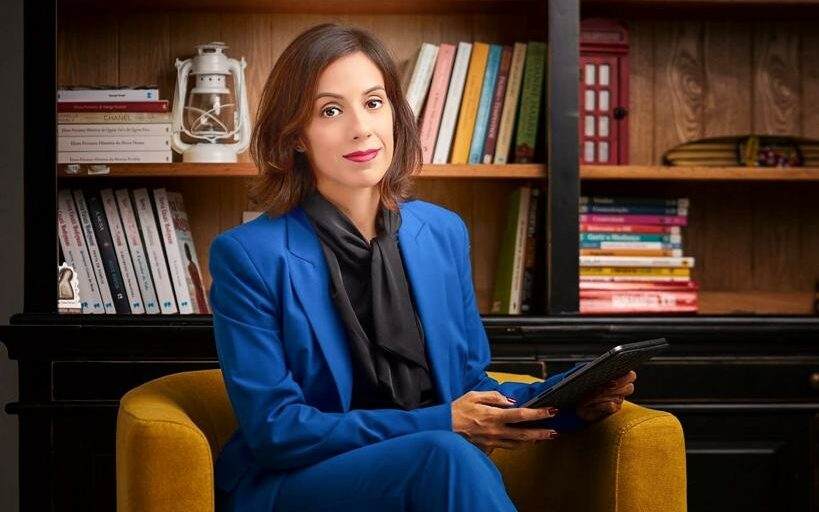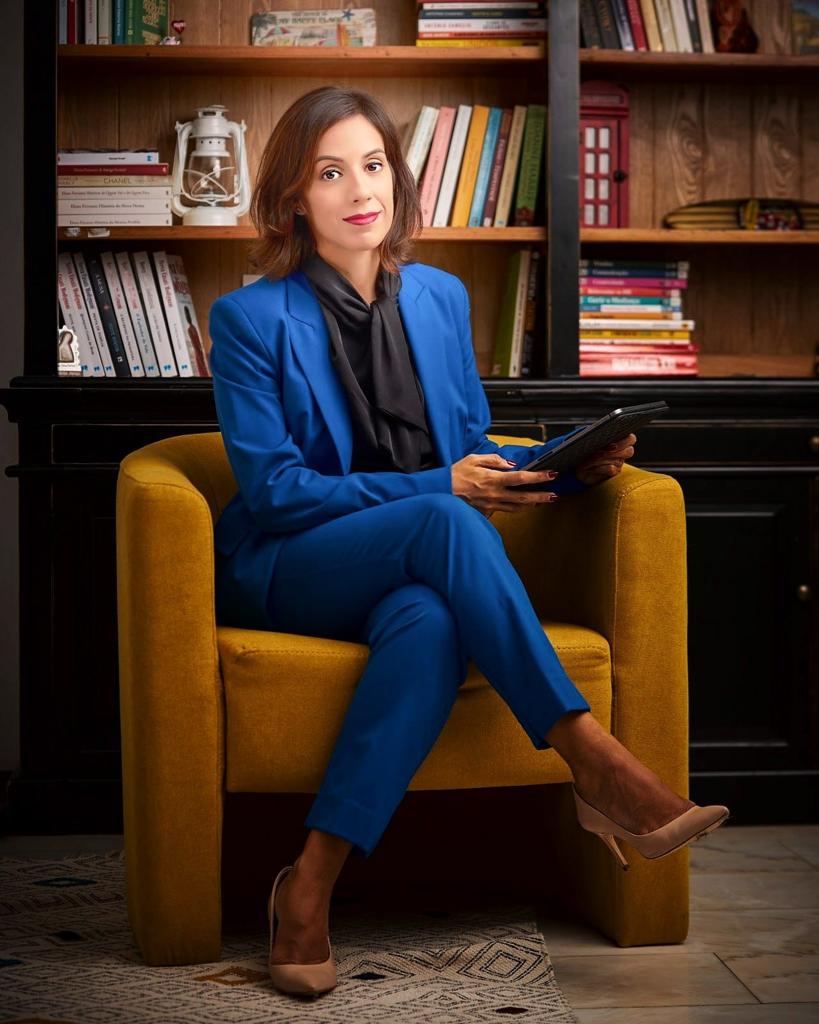Lúcia de Palma on Female Leadership

We Can All Sow Seeds to Improve Our Reality
In a recent interview with Lucia de Palma, a prominent advocate for gender equality and leadership development, the conversation focused on the multifaceted challenges that women face in their journey towards leadership roles. The discussion spanned across societal, educational and organizational dimensions, revealing the need for comprehensive reforms to break down barriers and foster an environment where gender is no longer a determinant of leadership potential.
Lucia emphasized the pivotal role of education in shaping young minds towards embracing diversity, creativity and innovation. She suggested that education programs should incorporate values that strengthen these concepts from an early age. By instilling a mindset of equality, education becomes the foundation for future relational paradigms in society, ultimately working to minimize gender-based inequalities.
The aspiration is to move towards a leadership paradigm where gender is irrelevant to one’s ability to ascend to certain positions. Lucia advocates for a macro vision of society that is completely egalitarian and equitable, where leadership qualities are recognized and nurtured irrespective of gender.
The discussion then turned towards the challenges within organizations, ranging from management styles that may hinder women’s access to leadership positions to recruitment and career progression biases. Balancing personal and professional life also emerged as a significant factor influencing women’s ability to access leadership roles.
Lucia highlighted the pervasive issue of self-doubt among women, fueled by the fear of failure and the pressure to manage expectations both in the workplace and at home. Overcoming these internal barriers is crucial for women to step confidently into leadership roles.
In the quest for gender equality in leadership, the insights shared by Lucia de Palma identified the need for a holistic approach. From reshaping educational curricula to challenging organizational norms and adopting agile practices, there is a collective responsibility to create an environment where female leaders can thrive. By addressing structural issues and fostering a culture of equality, we can pave the way for a future where leadership knows no gender boundaries.

How do you think organizations, society, and family can better support and encourage women to pursue leadership roles?
There would be many points to focus on this issue. From structural issues related to society and linked to education programs for young people, so that we can strengthen the concepts of diversity, creativity and innovation from an early age, until we can reach the level of genderless leadership, in which gender characteristics are not an impediment to aspiring to certain positions or functions; since the macro vision of society is completely egalitarian and equitable.
Education policies dedicated to this matter shape young people from an early age into a new mindset, which later on will serve as new foundations and relational paradigms in society, in favor of minimizing inequalities.
We cannot forget that one of the great current debates is the relationship between gender and social function, which to this day conditions women with brilliant skills and abilities to rise to places and prospects for personal and professional growth.
Within organizations, the problems are more diverse, starting from the management style that can be more or less emasculating for women’s access to leadership positions, through issues of recruitment, progression and career advancement, to the balance between personal life. and professional, which inevitably conditions women in accessing leadership positions.
This conditioning begins with the feeling that women themselves carry of fear of failing, of not being able to manage expectations and family versus family relationships, due to social and work pressure.
The weight is always greater when a woman ascends to a leadership position…In fact, it is also this pressure to deal with and lead several issues simultaneously that makes women have better cooperation skills when they reach management positions.
The practice of flexible schedules, hybrid models, establishment of continuous collaboration tools for better management, definition of objectives supported by transparent information systems can be a fundamental help for female management and leadership, simplifying work processes, maximizing the work done and providing more hours per day that can be dedicated to other activities and which allow for a reduced feeling of pressure when it comes to reconciling professional and personal life. Agile work models can support women, and all leaders in general, to encourage work practices in their teams that allow them to enjoy higher quality time, without losing focus on results and productivity.
Self-doubt is a common challenge for many aspiring female leaders. Can you share your personal strategies for overcoming this lack of confidence and achieving success in leadership positions?
Three strategies were fundamental for me to achieve success in my work as a leader.
The first is to develop self-knowledge: in the first phase, I dedicated myself to really knowing my profile: through behavioral tests and measuring the Emotional Intelligence Quotient (this has always been a very important topic for me – understanding the emotional triggers that made it difficult for me to emotion management).
In a second phase, I dedicated myself to writing my goals in an Okr’s model (objectives and key results). I believe that everyone should learn to write Okr’s, an objective management system created by the former CEO of Intel, and later developed by Google.
The “why” – objectives – key results triangle helped me a lot to understand what was a priority to accomplish, how to manage my time, and especially which activities I should say NO to.
This management helped me to be more focused, have better results, and to have a feeling of comfort in the correct management of personal and family life.
The third strategy was Rest! Save time to do nothing, enjoy the silence, dedicate myself to activities that I enjoy, from sports to reading.
Resting immensely increased my productivity, made me generate new ideas, have greater creativity and increased well-being in general.
Cultural education plays a vital role in shaping gender perceptions. How can we effectively educate our sons and daughters to believe that they can aspire to any profession or leadership role without gender bias?
Promoting the processes of choosing, selecting or identifying capable people for each position, whether in leadership or at work and in life in general, solely based on skills and the rate at which a person demonstrates them.
Competencies are abilities, talents, that can be demonstrated to a greater or lesser extent, and that make someone more or less suitable for a position, especially when we talk about leadership.
We must encourage this assertive vision and more justice in our choices in general, only in this way will women be able to have fair and equal access to all places.
We must educate our children with the feeling that what matters is developing skills, improving in the areas in which we are most interested, without looking at issues of gender, diversity, religion, nationality, or other personal characteristics.
Perceptions of gender limitations will disappear over time if we internalize that for each role, place, position or job, only the best person should be chosen based on their skills, and not their personal characteristics.
Leading by example is often cited as a powerful way to inspire others. Could you share a specific example from your own leadership journey where leading by example made a significant impact on those around you?
I would like to remember a situation a few years ago, when I was Head of Talent, in which I advocated the exclusion of personal questions in interviews, to avoid pre-judgment and selection criteria based on factors such as gender, race, age, religion and others.
Even though most recruiters know that these questions should not be used or asked in interviews, the reality is that most consultants cannot resist questioning these situations, even informally or indirectly.
At the time we had a lot of opposition from our clients regarding some of these issues, but I can proudly say that as a team we resisted the pressure, and managed to prove that we could also identify the best candidates without asking these types of questions.
I remember at the time saying to the team “How would you feel if one day your daughter came home and told you that she wasn’t selected for a job because she was a woman, over x years old, or had a small child? ” Later, the company implemented the practice of screening through tests and other assessments, which further minimized subjectivity, helping in a targeted way to identify the best talents.
We can all sow seeds to improve our reality, even though we know that the world doesn’t change overnight.

Lúcia de Palma: With a Master in Law Lúcia began her professional career in the area of Human Resources, with a special focus on Talent Development, Training, Recruitment and Selection, having collaborated with several multinational companies in the Consulting sector, serving as Talent Acquisition Director. She has more than 12 years of work experience in training in the areas of organizational development, coaching, agile, benefits and compensation, leadership, emotional intelligence and specialized recruitment.
Do you want to share your story and inspire our readers ? Know that every story is paving the way for a brighter, happier future.





